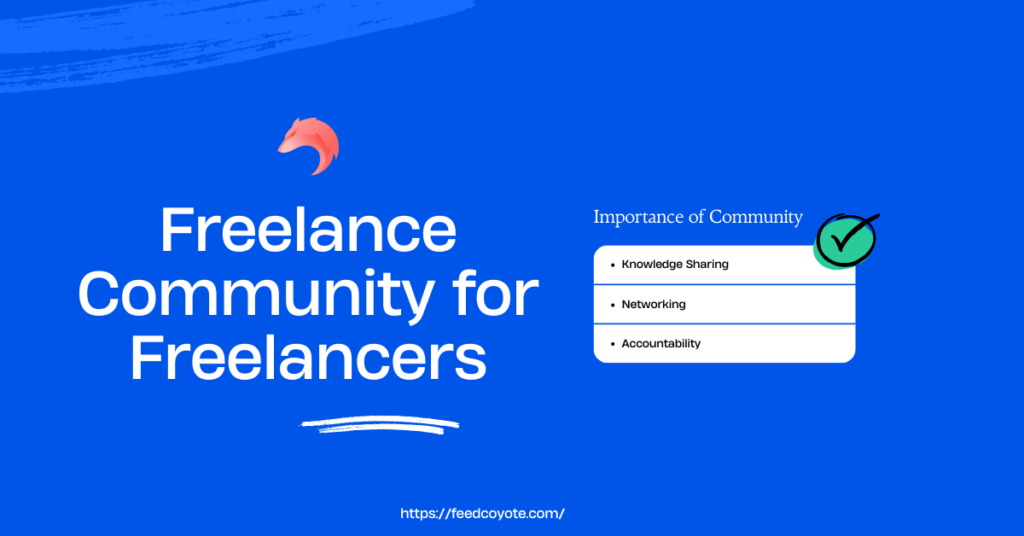In the ever-evolving landscape of the gig economy, freelancing has become a popular choice for many individuals seeking flexible work arrangements. However, like any profession, freelancing comes with its unique set of challenges. In this comprehensive guide, we will delve into the major problems faced by freelancers and provide actionable solutions to overcome them.
Freelancing offers independence and flexibility, but it also presents a range of challenges. Let’s explore these challenges and discover effective strategies to navigate them successfully.
Uncertain Income
One of the most common challenges for freelancers is dealing with irregular income. Unlike traditional jobs, freelancers often face periods of feast and famine. To address this, it’s crucial to:
- Build a Diverse Client Portfolio:
Relying on a single client is risky. Diversify your client base to ensure a steadier income stream.
- Create a Financial Cushion:
Save during high-earning months to cushion yourself during lean times.
Isolation and Loneliness
Freelancers often work in isolation, which can lead to loneliness and decreased motivation. To combat this:
- Networking:
Attend industry events and join freelancing communities like Feedcoyote & connect with like-minded professionals.
- Co-Working Spaces:
Consider working from co-working spaces or cafes to break the monotony of home office isolation.
Client Issues: Dealing with Difficult Clients
Dealing with demanding or difficult clients can be emotionally draining. Here’s how to handle them:
- Clear Communication:
Establish clear expectations from the beginning and maintain open lines of communication.
- Set Boundaries:
Don’t be afraid to set boundaries regarding scope, revisions, and deadlines.
Late Payments
Late payments can disrupt your cash flow. To prevent this:
- Payment Terms:
Clearly define payment terms in your contracts.
- Invoicing Software:
Use invoicing software & Templated to automate reminders for overdue payments. Feedcoyote ‘s Invoices will help you to Deal with Late payments and to ensure smooth onboarding process.
Scope Creep
Scope creep occurs when a project expands beyond the initial agreement. To avoid it:
- Detailed Contracts:
Create comprehensive contracts like Feedcoyote that outline project scope and revisions.
- Change Requests:
Charge extra for changes that go beyond the original scope.
Work-Life Balance
Maintaining a healthy work-life balance is challenging for freelancers. Strategies include:
- Set Work Hours:
Define specific work hours and stick to them.
- Take Breaks:
Regular breaks improve productivity and reduce burnout.
Self-Motivation
Freelancers must be self-driven. To boost motivation:
- Set Goals:
Establish clear goals and reward yourself upon achieving them.
- Stay Inspired:
Surround yourself with inspiration, whether it’s through books, podcasts, or mentors.
Healthcare and Benefits
Lack of traditional benefits like healthcare and retirement plans is a concern. Solutions include:
- Freelancer Associations:
Join freelancer associations that offer group benefits.
- Budgeting:
Allocate a portion of your income for healthcare and retirement savings.
Managing Finances
Freelancers need to manage their finances efficiently. Tips include:
- Budgeting Software:
Use budgeting software to track expenses and income.
- Hire an Accountant:
Consider hiring an accountant for tax planning and financial advice.
Competition
The freelance market is competitive. Stand out by:
- Specialization:
Focus on a niche where you excel to become an expert.
- Continuous Learning:
Invest in learning and staying updated in your field.
Legal and Contractual Challenges
Legal issues can arise. Protect yourself by:
- Solid Contracts:
Always use well-drafted contracts.
- Consult Legal Advice:
Seek legal counsel for complex issues.
Staying Updated
Freelancers must stay current in their fields. Ways to do this include:
- Online Courses:
Enroll in online courses to acquire new skills.
- Attend Workshops:
Participate in workshops and conferences to stay informed.
Marketing and Self-Promotion
Marketing your services is essential. Techniques include:
- Social Media:
Utilize social media platforms to showcase your work.
- Online Portfolio:
Maintain an updated online portfolio.
Time Management
Effective time management is crucial. Tools and techniques include:
- Time Tracking Apps:
Use apps to monitor and optimize your time.
- Prioritization:
Focus on high-value tasks and delegate or automate others.
Burnout
Freelancers are susceptible to burnout. Prevent it by:
- Vacations:
Schedule regular vacations to recharge.
- Delegate:
Outsource tasks when possible to reduce workload.
Conclusion
Freelancing is a rewarding career choice, but it comes with its share of challenges. By implementing these strategies and staying resilient, you can overcome the hurdles and enjoy a successful freelance career.
Frequently Asked Questions (FAQs)
1. How can I find reliable clients as a freelancer?
Finding reliable clients requires networking, showcasing your skills, and delivering exceptional work. Join freelancing platforms like Feedcoyote and attend industry events to connect with potential clients.
2. What should I include in my freelancer contract?
A freelancer contract should specify project scope, deadlines, payment terms, and any additional terms relevant to your work. It’s advisable to consult with a legal professional to create a comprehensive contract.
3. How can I combat loneliness as a freelancer?
To combat loneliness, consider working from co-working spaces, attending networking events, and joining freelancing communities online. Building a support network can help alleviate feelings of isolation.
4. How do I handle late payments from clients?
To handle late payments, send polite reminders and follow up with stricter actions, such as late fees or withholding work until payment is received. Ensure your contracts clearly outline payment terms and consequences for late payments.
5. What are some effective marketing strategies for freelancers?
Effective marketing strategies include maintaining an active online presence through social media, having an updated portfolio, seeking client referrals, and participating in industry-related forums and discussions.





